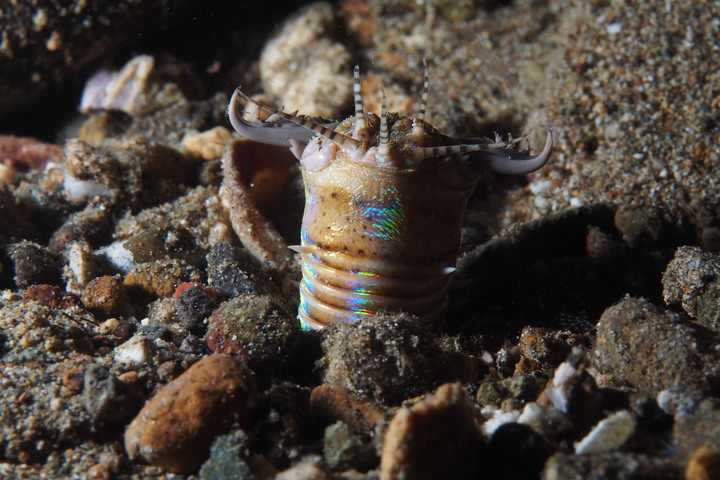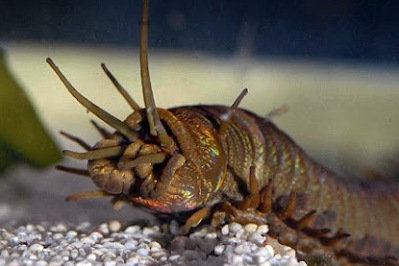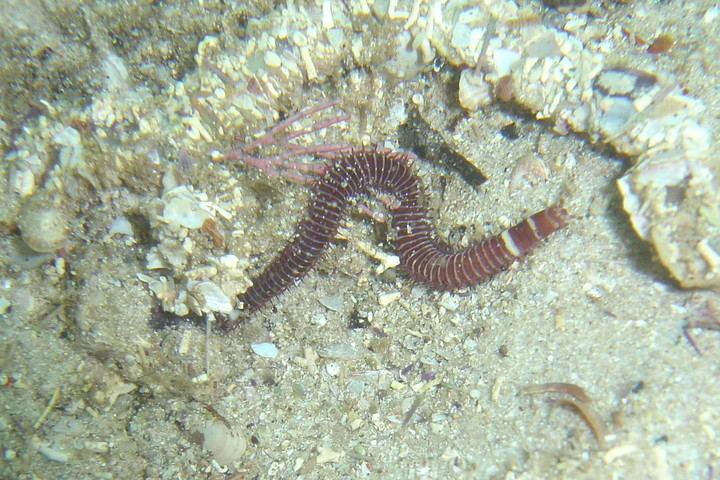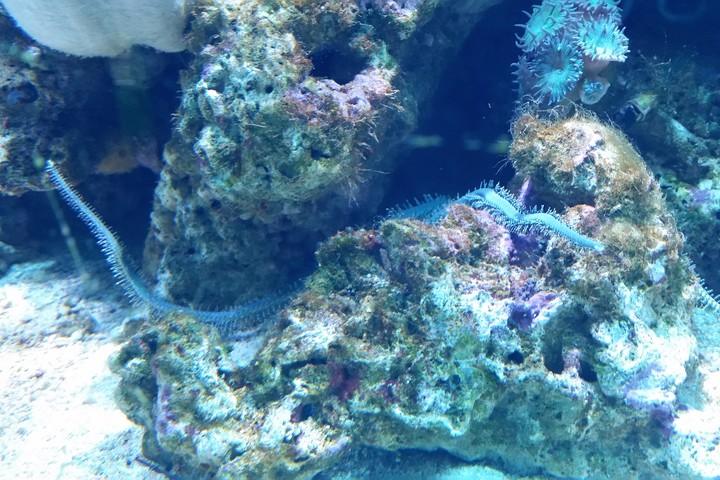Eunice aphroditois




| Latin name | Eunice aphroditois |
|---|---|
| Local name | Bobbit worm |
| Family | Eunicidae - Eunice |
| Origin | East Indian Ocean, West Indian Ocean, Australia, Japan, The Red Sea, The Mexican Golf, West Atlantic, Indonesia, Mediterranean Sea, East Pacific, New Zealand, Central/West Pacific |
| Max length | 300 cm (118.1") |
| Minimum volume | Unknown |
|---|---|
| Hardiness |
Hardy |
| Suitable for aquarium |
Suitable for most aquarium |
| Reef safe |
Unknown |
| Aggressiveness | Unknown |
| Recommended |
Fish Larger crustaceans (Shrimp, crabs...) |
|---|
This species eats all kinds of fish, shrimps, crabs etc. which are of suitable size.
Leonard Ho. 2017. Bobbit worms really are the stuff of nightmares - reefs.com - (English)

